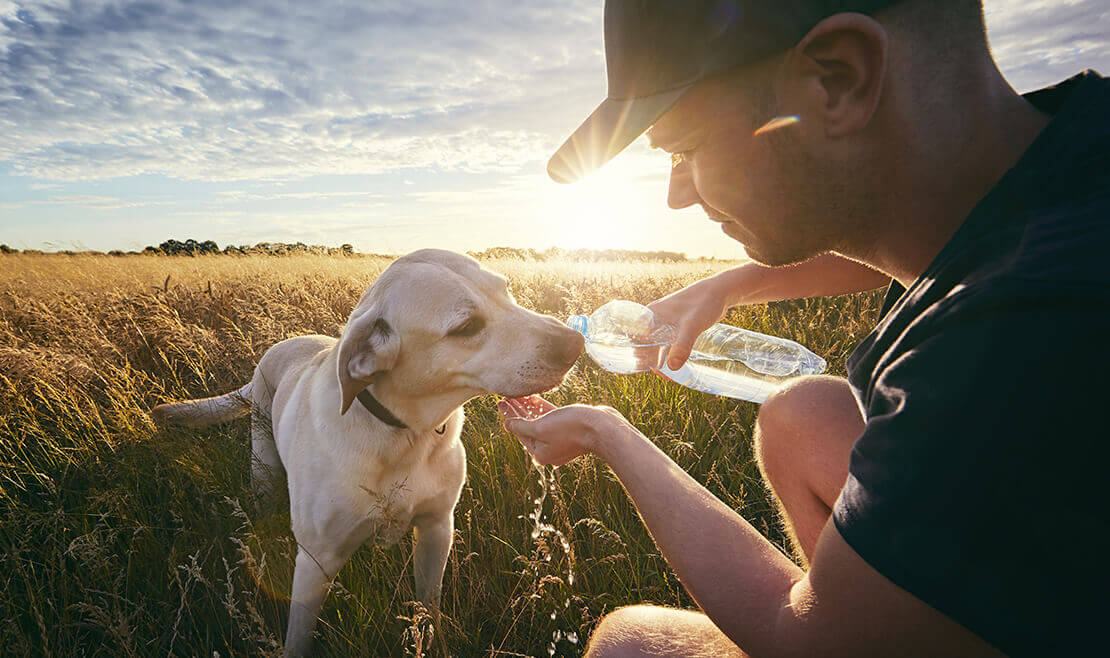Stay Safe! Be Prepared!
Published August 29, 2019


It’s hurricane season, and while this may sound alarming to pet owners, we have provided some tips that will help ensure you and your pet are prepared should the worst happen.
One of the first things you need to do is make sure all your pets are up-to-date on their vaccines—if your animals are in a situation where they have to travel or be boarded or placed in an evacuation shelter, making sure they are current on vaccines is paramount for their health as well as the health of other animals. Your pets should also already be microchipped, but if they aren’t, it’s extremely important to have them chipped this time of the year in case they get lost or separated from you.
After a disaster, landmarks and familiar scents may be altered, which can cause animals to become confused and lost. When all pets do go outside, please keep them on a leash and keep them close, as they may be unaware of their surroundings. Additionally, keep in mind that snakes and other potentially dangerous animals may have migrated to your area, so be on the lookout for these animals as well as other hazards, such as downed power lines.
Also, make sure to have an Evac-Pack and supplies handy for your pets, and place this in a location where everyone in your household can access it. Please ensure that it is clearly labeled and easy to carry. In this pack, keep essentials such as:
Water, water, water and more water. Have at least seven days’ worth of bottled water for each person and pet.
Enough food for everyone for at least a week, if not longer. Ensure that food is stored in water-tight containers, and only use canned food if you are desperate. Please note that changing your pets’ diet can lead to diarrhea and dehydration.
Pet first-aid kit and guide book. Know what to have and do in case of an emergency. You can find a list of first aid supplies and tips here.
Pet medical supplies. Store photocopies of medical records as well as a waterproof container with a two-week supply of any medicine your pet requires.
Other miscellaneous essentials. Include a flashlight, blanket, recent photos of your pet, liquid dish soap, disinfectant, and a long leash and yard stake.
Another helpful thing to keep in mind is having proper transport for each pet—ideally a traveling bag, crate, or sturdy carrier.
Finally, you should have an emergency kit for the human members of the family. Items you should include are batteries, duct tape, a flashlight, radio, multi-tool, tarp, rope, permanent marker, baby wipes, protective clothing and footwear, extra cash, rescue whistle, important phone numbers, extra medication and copies of medical and insurance information, a signal mirror, compass, human first aid kit, several portable power banks, matches, and spray paint for visible messages in case of a communication outage.
Additional helpful resources include:
FEMA
Ready.Gov
ASPCA
CDC
If your pets are not current on all of their vaccines, don’t wait. Essentials PetCare is open during convenient hours and you can even check in online! Please note: We have a two-pet policy per family, per visit— please plan ahead to ensure that all of your animals can be cared for in a timely manner.
Being prepared is not difficult and having a plan and proper supplies will help your family and pets in case the worst happens.
If you have any questions or concerns, please do not hesitate to contact your local clinic.



